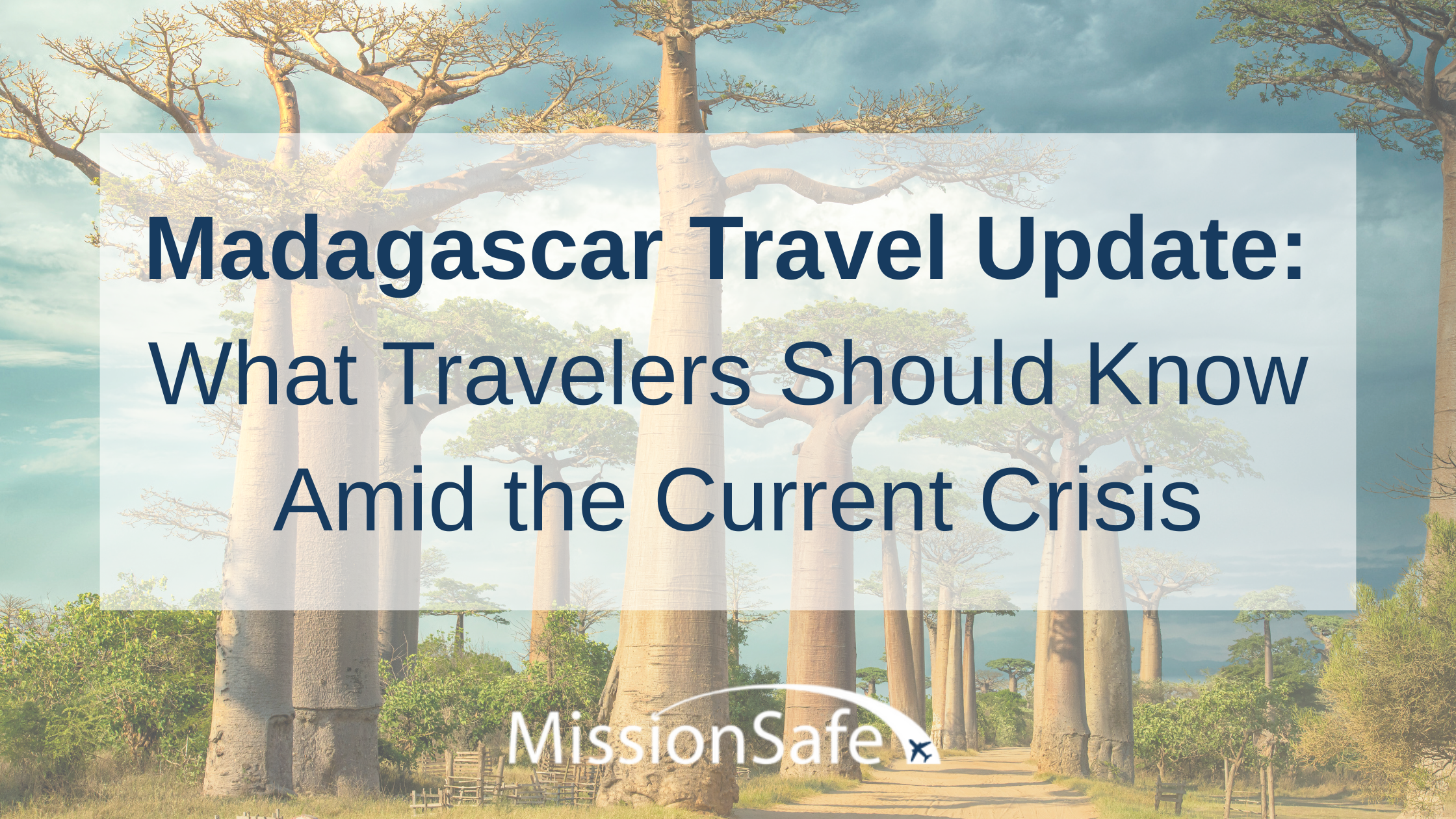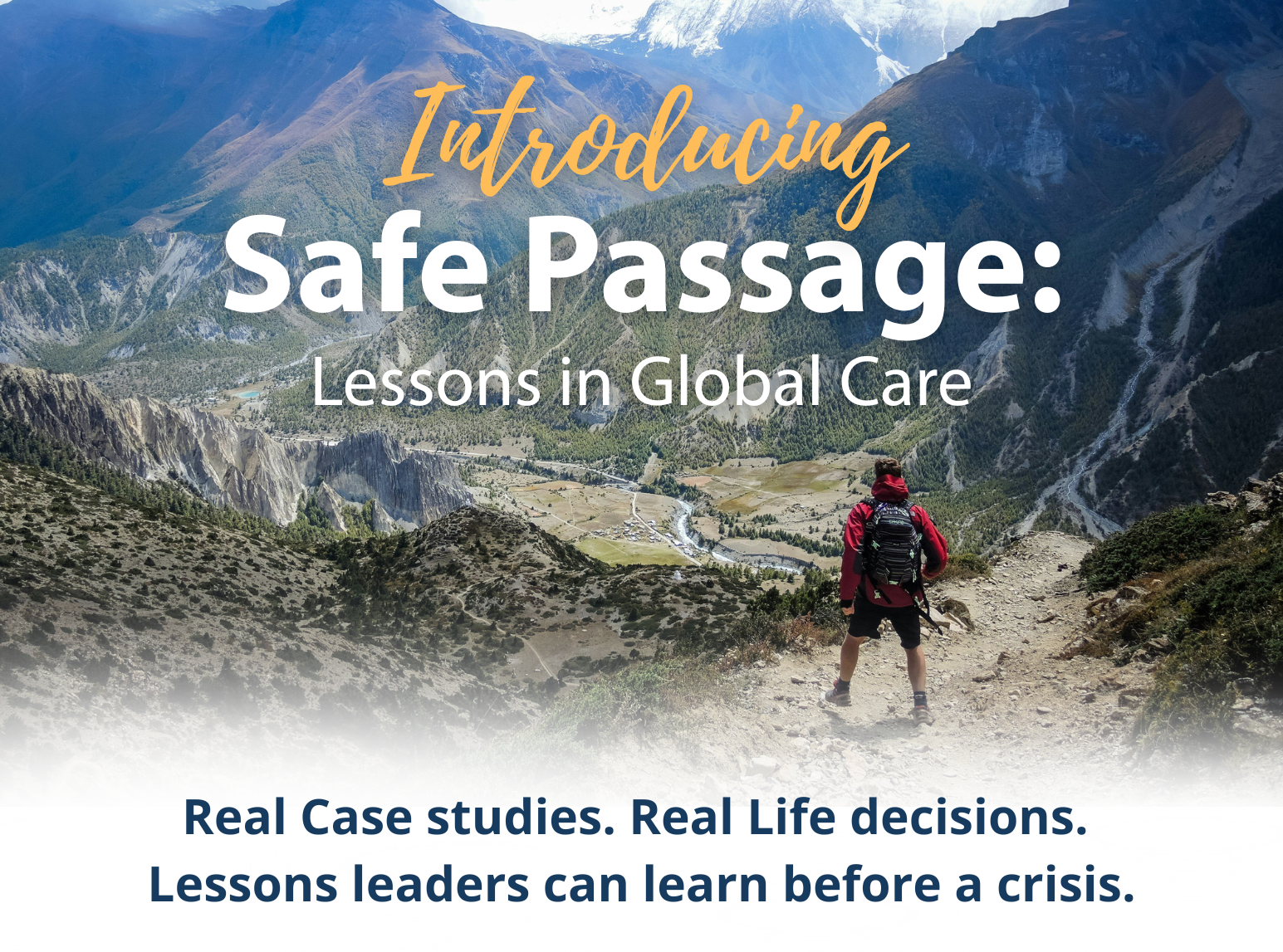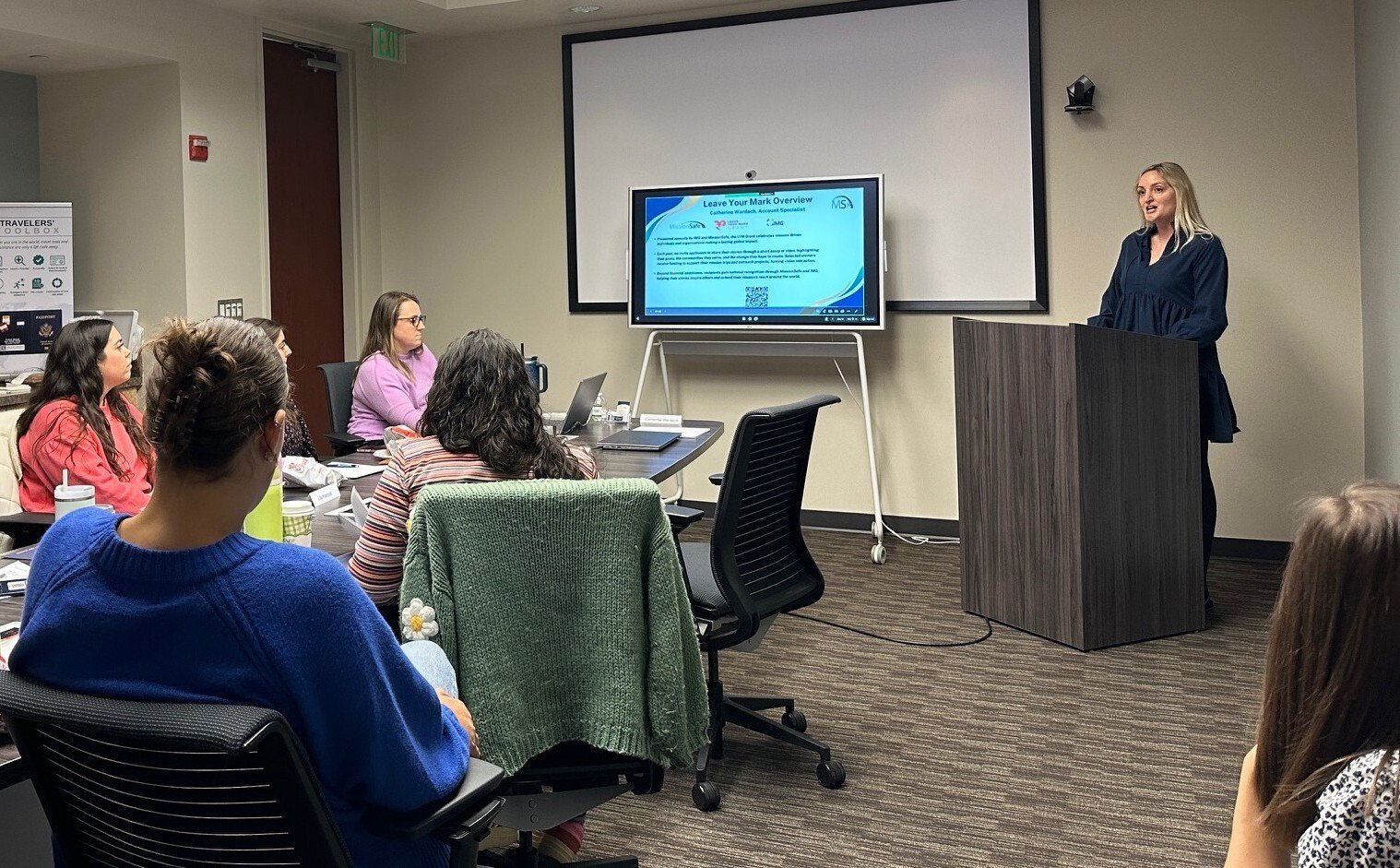What is Safe Passage?
Safe Passage isMissionSafe's new travel preparedness tool built from real travel emergencies. It helps travelers and travel leaders know what to do...
2 min read
msadmin : October 13, 2025

Madagascar, a breathtaking island known for its rainforests, coral reefs, and unique wildlife, is currently facing a serious political and humanitarian crisis that’s impacting daily life across the country. If you’re planning travel to Madagascar in the coming months, it’s important to understand the risks, prepare accordingly, and stay informed every step of the way.
Below is a guide to help you make informed decisions and travel safely during this period of instability.
In early October 2025, widespread youth-led protests escalated into a national crisis after an elite military unit declared it was taking control of the armed forces. The unrest, centered in the capital city, Antananarivo, but spreading to regional hubs, has led to roadblocks, curfews, and sporadic clashes between protesters and security forces.
What this means for travelers:
Before traveling, check for the latest U.S. Department of State or U.K. Foreign Office advisories and register your trip with your country’s travel program (e.g., STEP for U.S. citizens).
Madagascar’s already-fragile infrastructure is under additional strain. Frequent power outages, internet restrictions, and limited access to ATMs are being reported, particularly in the capital. Rural regions, many already facing drought and food shortages, have even less stability.
Traveler tips:
Madagascar remains one of the most biologically diverse countries on Earth but also one of the most medically fragile. Hospitals in rural regions are under-resourced, and even in Antananarivo, supplies and staff are stretched thin.
Compounding the crisis:
What to do before you travel:
Beyond political tension, Madagascar continues to face severe climate shocks—drought in the south and cyclone threats in the east. Some roads and bridges remain unrepaired from previous storm damage, and fuel shortages may limit regional transport.
Traveler takeaways:
Before Departure:
During Travel:
At MissionSafe, we believe that preparedness is the key to peace of mind. While we recommend postponing non-essential travel to Madagascar until the political situation stabilizes, essential travelers (such as humanitarian staff or researchers) should take proactive steps now:
Even in uncertain times, informed travelers can make confident, responsible decisions—and that starts with being insured, equipped, and alert.
If you have travel plans to Madagascar or neighboring regions, contact your MissionSafe representative for guidance, policy support, and updates from our international assistance team.

Safe Passage isMissionSafe's new travel preparedness tool built from real travel emergencies. It helps travelers and travel leaders know what to do...

How MissionSafe, AIM, and World Race Are Advancing Risk Management Through Expert-Led Training

Some callings take root early. For Megan Parham, one of this year's Leave Your Mark Grant recipients, that moment came at age 15 on her first mission...